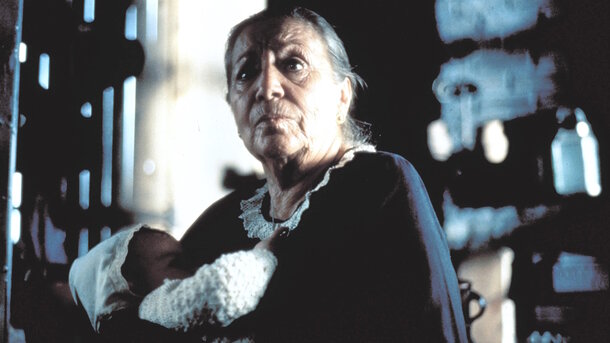In Mexico hot chocolate is traditionally made with water instead of milk. The water is brought to a boil before chocolate is added, and someone in a state of sexual excitement is described as being "like water for chocolate." This concept beautifully frames the film "Like Water for Chocolate," where every character appears to simmer with passion, revolving around a woman whose sensuality manifests in her cooking, creating dishes so potent that they evoke laughter, tears, or even spontaneous acts of rebellion.
Set in a Mexican border town around 1910, the film follows the intense love story of Tita and Pedro, who are tragically never allowed to marry due to the oppressive rule of Tita's formidable mother, Mama Elena. Tita's heartache deepens when Pedro marries her older sister, Rosaura. However, Pedro has ulterior motives; during the wedding celebration, he confides to Tita that he married Rosaura only to stay close to her, declaring his unwavering love for Tita. Overwhelmed with mixed emotions while baking the wedding cake, Tita's tears blend with the ingredients, transforming the cake into an enchanting dish that moves the guests to tears, despite the supposed joy of the occasion.
Narrated by Tita's great-niece, the film reveals how Tita's kitchen becomes a source of extraordinary culinary wonders over the years. For instance, when Pedro gifts Tita a dozen red roses, she prepares a dish with quail and honey that acts as an aphrodisiac, causing wild reactions among the diners, including Gertrudis, who, overwhelmed, runs outside and ignites a chain of chaotic events that ultimately sees her become a revolutionary leader.
Based on Laura Esquivel's novel, "Like Water for Chocolate" embodies the magical realism central to modern Latin literature and film, suggesting that love can alter reality through emotion. Lumi Cavazos, as Tita, embodies this magic with her lifelong devotion to Pedro, a love that endures despite their separation. The film unfolds like a cherished family legend, capturing the bittersweet essence of nostalgia. Ultimately, it leaves behind a beautiful legacy: Tita's recipe book, a tangible connection to the past that resonates with anyone who has cherished a loved one's culinary creations.











